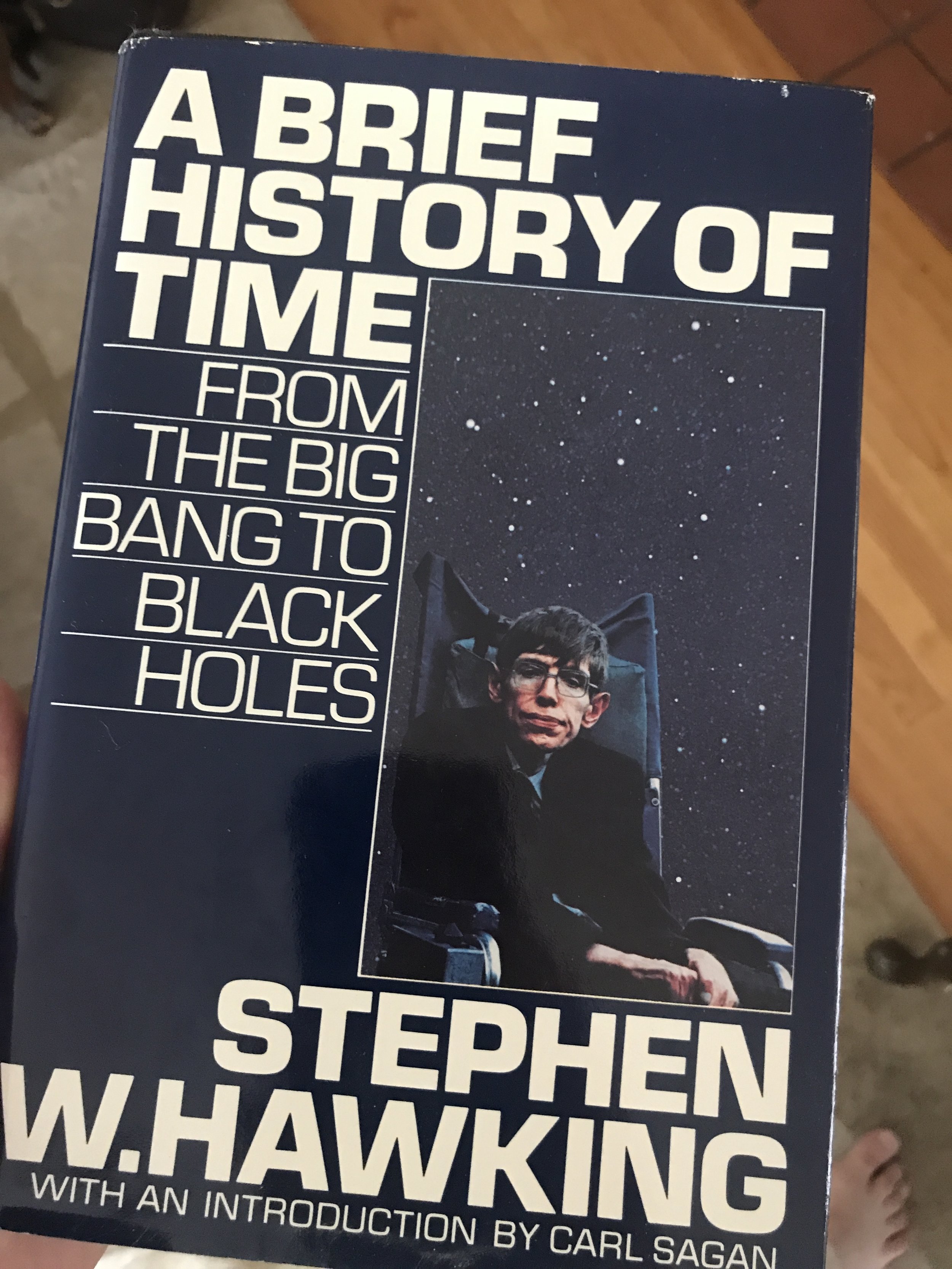I can't remember ever being moved to pray after watching a movie. But last night I prayed.
On Tuesday, I had finished reading A Brief History of Time: the best selling popular level physics book by Stephen Hawking. It is a clearly communicated and brilliant look into cosmology, explaining, as the subtitle says, "the big bang to black holes."
In chapters 1-7 I was given a layman's look at the history of the theories of the universe and the ever more precise proposed answers we have discovered about space and time. I felt as though I was sitting, again, in my mathematics undergrad realizing I may be touching the language with which God sustains the workings of the universe. It was stirring.
From chapter 8 to the conclusion, Hawking puts forward his theory of the boundary-less universe and time and seems as though his goal is to toss away the need for a creator. I felt the book lost its solid foundation toward the end and realized that, boundary or not, singularity or not, a creator is not rendered unnecessary. Both of the current theories of the beginning of the universe can have God as the first agent. Read a smart explanation of that here.
After finishing a great read, I watched The Theory of Everything, the 2014 film with an award winning performance by Eddie Redmayne as Hawking. It tells the story of his life, looking for the equation that explains everything. He comes to the theory that the universe and time are boundary-less and thus thinks they have no creator.
At the end of the movie he is asked the pressing question, “You have said that you do not believe in God. Do you have a philosophy of life that helps you?” His response, in the movie, is a wordplay that is suppose to have our ambitions soaring.
"It is clear that we are just an advanced breed of primates on a minor planet, orbiting around a very average star, in the outer suburb of one among a hundred billion galaxies. But, ever since the dawn of civilization, people have craved for an understanding of the underlying order of the world. There ought to be something very special about the boundary conditions of the universe. But what can be more special than that there is no boundary? And there should be no boundary to human endeavor. We are all different. However bad life may seem, there is always something you can do and succeed at. While there is life, there is hope."
He then receives a standing ovation.
The crowd stood and I sat in sadness. This brilliant man had plumbed the depths of what it means to understand the creation of the universe and then chooses a platitude to explain the point of our existence in the universe. "We have always searched for underlying order but let us remember that there are no boundaries." Even in the midst of his quote I felt, if it were true, a complete meaninglessness of life and existence. We are here for no reason. If there is life there is hope, apparently, but his own worldview says it will all disappear and we are just evolved lifeforms.
We are all an accident. What is the point? Is his brilliant mind really satisfied with that answer?
It felt like watching a toddler walking around his father, measuring his height, watching his movements, observing the way he puts together projects and then striving for a theory in hopes to describe that he does not exist.
He is the thinker that is getting closer to understanding the tools (equations) with which God created the universe. He has nearly touched the face of God and turned around and is trying to prove that the sustainer of the equations is unnecessary. It smacks of intellectual dishonesty.
The movie was over and I was heart-broken. I prayed for his soul and his mind and his heart. I prayed that the Creator he continues to walk around would softly put his hand on his shoulder revealing himself as the brilliant one who designed all these formulas and relationships that his brilliant creation is discovering.
